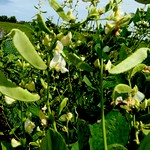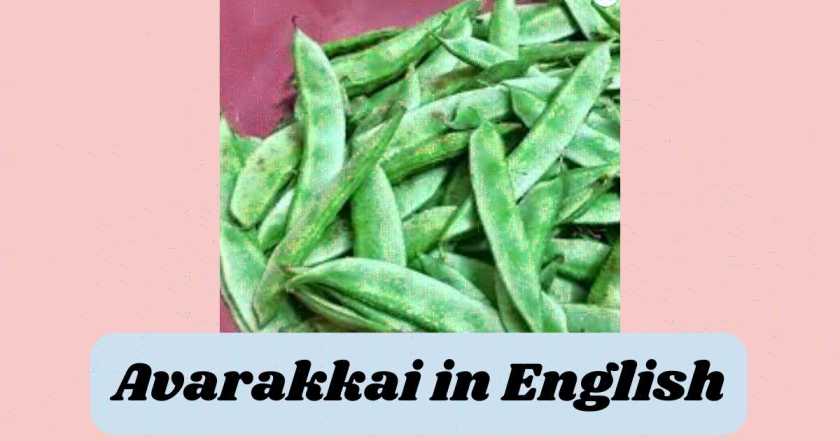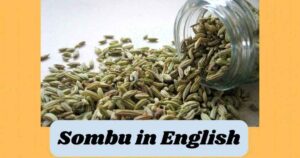Avarakkai in English
- Avarakkai English Name is “Indian Broad Beans” or “Flat Beans”
Avarakkai in Malayalam
- Malayalam name of Avarakkai is “Avara”
Avarakkai in Hindi
- Avarakkai‘s Hindi name is “Sem”
Avarakkai in Telugu
- Telugu name of Avarakkai is “Chikkudu Kaya”
Avarakkai in Kannada
- Kannada name of Avarakkai is “Avarekayi”

Avarakkai/Indian Broad Beans
Avarakkai, also known as Indian broad beans, holds a significant place in Indian cuisine due to its cultural importance. This versatile legume not only adds a unique flavor to dishes but also offers a plethora of health benefits. From traditional recipes to modern culinary creations, avarakkai has been a staple ingredient in Indian households for generations.
The rich history and cultural significance of avarakkai can be traced back to its origins in Indian agriculture. Its presence in various regional cuisines highlights the diversity and versatility of this legume. Whether used in curries, stir-fries, or rice dishes, avarakkai brings a distinct taste and texture that elevates the overall dining experience.
Beyond its culinary uses, avarakkai is valued for its nutritional profile, being a good source of protein, fiber, and essential vitamins and minerals. Its health benefits range from aiding digestion to promoting heart health, making it a valuable addition to a balanced diet.
Avarakkai, known as “Avara” in Malayalam, is called “Sem” in Hindi, “Chikkudu Kaya” in Telugu, and “Avarekayi” in Kannada.
In this article, we will delve deeper into the world of avarakkai, exploring its English translation, alternate names in different regions, unique culinary uses, and the array of health benefits it offers. Join us on a journey to discover the wonders of avarakkai and how this humble legume continues to captivate taste buds and nourish bodies across the globe.
Avarakkai’s English Name
The name “Avarakkai” originates from the Tamil language, where it is commonly used to refer to Indian broad beans. The word “Avarakkai” holds cultural significance and reflects the deep-rooted connection of this legume to South Indian cuisine. In Tamil, “Avarakkai” translates to “broad beans,” emphasizing the physical characteristics of this versatile ingredient.
In different regions of India, this legume is known by various names such as “Chikkudu” in Telugu, “Sem” in Hindi, and “Val” in Marathi. These alternate names showcase the widespread popularity and diverse culinary applications of Avarakkai across the country.
Avarakkai is prized for its unique taste and texture, which adds depth and flavor to a wide range of dishes. Its slightly nutty and buttery flavor profile pairs well with spices, herbs, and other ingredients commonly used in Indian cooking. Avarakkai is commonly featured in curries, stir-fries, dals, and rice dishes, where it contributes a hearty and satisfying element to the meal. The tender yet firm texture of Avarakkai holds up well in cooking, making it a versatile ingredient that can be used in both vegetarian and non-vegetarian preparations.
Nutritional Profile of Avarakkai
Avarakkai, also known as Indian broad beans, boasts a rich nutritional profile that makes it a valuable addition to a balanced diet. This legume is packed with essential vitamins, minerals, and beneficial compounds that contribute to overall health and well-being.
In terms of vitamins, Avarakkai is a good source of vitamin C, vitamin K, and folate. Vitamin C is known for its antioxidant properties, which help boost the immune system and promote skin health. Vitamin K plays a crucial role in blood clotting and bone health, while folate is essential for cell division and DNA synthesis.
When it comes to minerals, Avarakkai is particularly rich in potassium, iron, and magnesium. Potassium is important for maintaining healthy blood pressure levels and supporting proper muscle function. Iron is essential for oxygen transport in the blood, while magnesium plays a role in energy production and muscle function.
Additionally, Avarakkai contains beneficial compounds such as dietary fiber, which supports digestive health and helps regulate blood sugar levels. The presence of antioxidants in Avarakkai also contributes to its overall nutritional value by protecting cells from damage caused by free radicals.
Compared to other legumes and vegetables, Avarakkai stands out for its impressive nutritional content. Its combination of vitamins, minerals, and beneficial compounds makes it a nutrient-dense food that can enhance the nutritional quality of meals. Incorporating Avarakkai into your diet can help you meet your daily nutrient requirements and support your overall health and well-being.
Benefits of Avarakkai
Avarakkai offers a plethora of health benefits that make it a valuable addition to your diet:
- Digestive Health: Avarakkai is rich in dietary fiber, promoting healthy digestion and supporting gut health. The fiber content helps regulate bowel movements and prevents constipation, contributing to overall digestive well-being.
- Nutrient-Rich: This legume is a powerhouse of essential nutrients, including vitamins, minerals, and antioxidants. By incorporating Avarakkai into your meals, you can ensure that your body receives a wide array of vital nutrients necessary for optimal health and well-being.
- Blood Sugar Management: Avarakkai has a low glycemic index, making it a suitable choice for individuals looking to manage their blood sugar levels. The fiber and protein content in Avarakkai helps slow down the absorption of sugar in the bloodstream, aiding in blood sugar regulation.
- Heart Health: Avarakkai plays a role in supporting cardiovascular health due to its potassium content. Potassium helps regulate blood pressure levels, reducing the risk of hypertension and promoting heart health. Additionally, the fiber and antioxidants in Avarakkai contribute to overall heart health by reducing inflammation and oxidative stress.
Incorporating Avarakkai into your diet not only adds delicious flavors to your meals but also provides a range of health benefits that can enhance your overall well-being.
Culinary Delights with Avarakkai
Traditional Recipes: Embrace the rich culinary heritage of India by indulging in traditional recipes that highlight the unique flavors of Avarakkai. From classic sambar to flavorful poriyal, these dishes showcase the versatility of this nutritious legume. Experience a burst of authentic Indian flavors with every bite, while reaping the health benefits Avarakkai has to offer.
Creative Uses: Elevate your culinary creations by experimenting with innovative ways to incorporate Avarakkai into your dishes. Whether you add it to salads for a crunchy texture, blend it into smoothies for a nutrient boost, or use it as a filling in wraps or sandwiches, the possibilities are endless. Get creative in the kitchen and let Avarakkai inspire your culinary imagination.
Cooking Techniques: Master the art of cooking Avarakkai with different techniques that help retain its nutritional value. Whether you prefer steaming, stir-frying, or pressure-cooking, each method can enhance the taste and texture of Avarakkai while preserving its essential nutrients. Explore various cooking techniques to unlock the full potential of this versatile ingredient in your meals.







